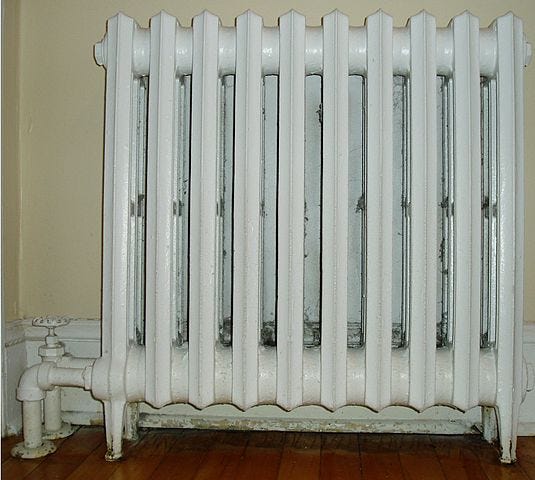The problems, conflicts, and crises of this year so far have affected countries in quite different magnitudes and proportions.
- China is suffering from a massive domino effect of bankruptcies that may trigger the mother of all real estate crises.
- Lithuania and Poland are facing the threat of a radioactive cloud if Russia keeps shelling the massive Zaporizhzhia power plant.
- Russia itself, despite the government propaganda, is suffering a massive brain drain due to economic sanctions and is losing the most qualified share of its population.
- The US is facing record lows in economic confidence, and if that was not enough, a historical indicator that always preceded bad news is at a boiling point.
- Some countries, however, like Brazil, are managing somehow to stay out of problems and are presenting increasingly positive economic indicators. Others, like the UAE and Qatar, are even profiting from all these problems.
But none of these issues or crises are receiving as much attention as the MASSIVE storm on the horizon: the winter of 2022 and Europe’s prohibitive energy prices.
But not everything is lost. In this article, I will tell you what you should do to cross it almost unscathed.
Check also: 3 lovely and inexpensive cities to visit in Europe this winter.
How to Prepare for Winter 2022 in Europe
So let’s talk about winter, but first of all, 2 disclaimers.
1st — Not all countries will suffer the same. While countries like Italy, France, and the Netherlands have over 100 TWh of gas stored each, the United Kingdom has only 9 TWh (and doesn’t have any extra storage capacity, since they closed their main storage site 5 years ago… so yes, life in London tends to be even more expensive).
2nd — Many of the pieces of advice that you will see below will look exaggerated, and the fact is that they may be extreme. This doesn’t mean, however, that they are useful. Of course, everything depends on your disposition to save money and what your income level is. Some rich Germans may prefer to spend the winter in some Mediterranean islands instead.
The 16 methods below are intended to save money. They are not supposed to make you comfortable or to brag to your friends about how great your life is in Europe.
They are also not completely written by me but inspired by discussions in a very fruitful Telegram group called Hyperinflation Support Group.
With no further ado:
2022 Winter Preparation Checklist for the Frugal European
Check also: How to Prepare for War as a Civilian (Read It NOW if You Live Abroad)
1st — Start growing a beard to keep your face warm.
The beard not only helps to hold body heat in, but it can protect against the windchill factor. This is something that people who moved to warm places should learn in their first winter here (together with the Vitamin D supplementation).

2nd — Use emergency blankets
These metallic silver blankets are a necessity for outdoor adventures and a crucial part of any first aid kit (you likely have one in your car kit), but this winter they can also help you at home. They can hold 90% of your body heat.
3nd — Use thermal underwear & layer your clothes.
This one is quite obvious here where I live, Poland (a place where the cost of living also increased drastically), but I discovered recently that people from other countries are not used to using thermal layers all the time.
Remember that the first layer should not entrap moisture, otherwise your body will be wet all the time — something that is not good for thermal balance and can bring skin problems.
4th — Use Microwaveable Heating Pads or old-style salt heating pads
You can purchase heating pads, or you can do a homemade version of them. Useful when returning home with cold hands or feet.
5th — Diets high in fat and omega-3 fatty acids increase resistance to cold.
According to Japanese researchers (and also according to common sense), high-fat diets caused significant increases in body weight, blood-free fatty acids (FFA), ketone bodies, and glucose.
Ginger is also good to make you warm. In fact, one time I made ginger root tea and it was so concentrated that, despite temperatures well below 10 degrees celsius, I was sweating. It also made my heart accelerate a lot, so likely you should watch out for how much ginger you use.
6th — Get yourself used to the cold by taking contrast showers gradually prolonging the cold period.
Sometimes our body is just too lazy to adapt to the cold, so we should put it out of our comfort zone. Wim Hof (or Cristiano Ronaldo) may teach us some important lessons in this matter.
7th — Buy electric blankets
I am adding this one here, but personally, I am not a fan of the idea of sleeping wrapped in some electrical circuit. Besides, electricity is also expensive.
8th — Don’t drink too much alcohol
To metabolize alcohol, your body uses a lot of energy, and it only further derives it from the precious heat. Plus, you may lose your sense and sleep in the cold and die frozen (not an exaggeration, it happens sometimes here in Poland).

9th — If you have the old-style heat radiators/stoves isolate them from behind with tin foil it can greatly increase the efficiency

10th — Buy a thermal detector and isolate heat leaks in the house with heat-resistant materials.
In this case, the roof should definitely be your focus
11th — It is better to stockpile a bit of food for the winter.
Even if there is no situation of empty shelves in the supermarkets, you avoid going outside if the temperatures are too low. Besides, stockpiling supplies protects you against inflation, at least temporarily (as I showed in this article, food supplies are skyrocketing).
12th — Try sleeping in one room with all your family.
It is really not a big deal (unless you are very spoiled). When I was a kid in Brazil, we lived in a house with only 1 room and all 5 of us slept in the same place. We grew up just fine.
13th — Always wear a hat or a cap to keep your body warm.
This also is one of the things that looked obvious to me. Most of the body heat is evaporated through the head, so leaving it uncovered will basically waste a lot of heat from your body.
The cold wind hitting your head temples may also give you annoying headaches.
14th — Carpet your walls & floor.
This is an old Slavic method, and honestly: a nice carpet looks better than most modern art pieces. Just vacuum it from time to time.
15th — Allow the sun to warm your residences during the day’s sunny hours.
In other words: open the curtains during the day, it would be a waste to not do so.
16th — You can put a large blanket around your kitchen table and sleep inside a “small hut”.
This last piece of advice on our list about how to prepare for winter 2022 is part of the guide from the Swedish government for times of war. The Polish government also made an interesting war survival manual, and I translated the most important points here.
If you are in the mood for something warmer, check out our list of the best beach destinations for holidays.
If you enjoyed this article on how to prepare for winter 2022, below are some pieces that will be really helpful to you for the next few months (and likely the entire 2023):
- In 2021, I wrote this article about 4 industrial sectors that may benefit from the incoming (now current) inflation spike. It is still valid.
- Here is what you can expect for the next 12 months, from the second semester of 2022 until the middle of 2023. Read it, save it, and one year from now, tell me if I was right or not.
- Here is a practical guide to surviving the mega inflationary wave, with advice from Argentinians, Brazilians, Poles, and others who have experienced life under out-of-control inflation firsthand.
Good luck, and good reading.
Subscribe (for free) to receive my articles directly in your inbox and receive a special gift. If you enjoy this article, please consider becoming a Medium member by using this link and have access to premium, unbiased content from authors not tied to big media.
Levi Borba is the founder of expatriateconsultancy.com, creator of the channel The Expat, and best-selling author.




